...
...

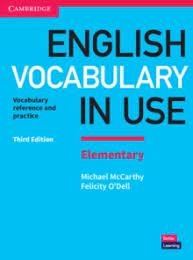
 كلمة جديدة
-
كلمة جديدة
-
 كلمة صعبة
كلمة صعبة

C Things we use for eating and drinking cup, bowl, fork, knif, chopsticks, spoon, glass, plate, mug. D Expressions Where can I find a mug or a cloth or some kitchen roll? They are in the cupboard. Can I help with the washing-up or cooking? Yes, please! You can dry the plates. or You can cook some rice. Where does this cup or plate or frying pan go? Put it in this cupboard, please. Tip: Stick labels on objects in your kitchen with their English names on them. You will see these every day and this will help you to learn the words.
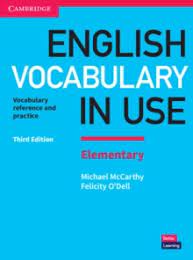
 كلمة جديدة
-
كلمة جديدة
-
 كلمة صعبة
كلمة صعبة

A Bedroom: bed, bedside lamp, alarm clock, pyjamas, dressing table,chest of drawers, mirror, wardrobe, bedside table, comb,hairbrush. B Bathroom: soap, toothpaste, toothbrush, shelf, basin, shower, shampoo, shower gel, razor, toilet, towel.
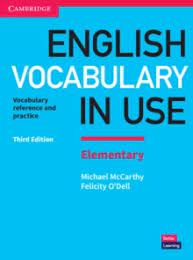
 كلمة جديدة
-
كلمة جديدة
-
 كلمة صعبة
كلمة صعبة

C Emma’s routine. Emma goes to bed at 11 o’clock. She goes upstairs to her bedroom. She gets undressed and gets into bed. She reads for a bit. She turns off the light and falls asleep. She wakes up when her alarm clock rings. She gets up. She has a shower, cleans her teeth and gets dressed. She goes downstairs to the kitchen for breakfast.
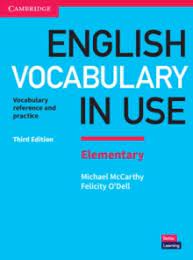
 كلمة جديدة
-
كلمة جديدة
-
 كلمة صعبة
كلمة صعبة

A Things in the living room books, bookshelf or bookshelves, light switch, light, picture, lamp, window, curtains, TV, hi-fi , sofa, armchair, phone, coffee table, remote control, socket, rug,carpet,table, chair. B Useful verbs Every evening I watch television. Sometimes I listen to the radio or listen to music. Sometimes I read a book. Sometimes I just relax [rest and do nothing].

 كلمة جديدة
-
كلمة جديدة
-
 كلمة صعبة
كلمة صعبة

C Expressions It’s getting dark. Can you close the curtains, please? OK. And I’ll switch the light on. Thanks. Now can you turn the radio off? And pass me the remote control. I want to turn on the TV. There’s a good programme on. Common mistakes: The furniture in my room is white [NOT The furniture in my room are white].
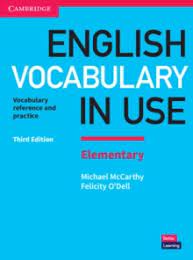
 كلمة جديدة
-
كلمة جديدة
-
 كلمة صعبة
كلمة صعبة

A What’s his or her job? doctor, teacher, nurse, mechanic, secretary, shop assistant, hairdresser, engineer, farmer. B Jobs in the town police officer, traffic warden, librarian, bank clerk. C Expressions What’s your job? I’m a waiter I work in a restaurant. What do you do? I’m a taxi driver. Is it an interesting job? Yes, I like it. Where do you work? I work in an office. Sometimes it’s boring. My dad works in a factory which makes car parts. I worked in a shop at the weekends when I was a student. I want to work in a beauty salon as a hairdresser. I’d like to work in a children’s hospital. I’m a writer. I work at or from home.
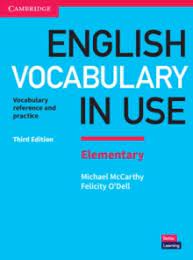
 كلمة جديدة
-
كلمة جديدة
-
 كلمة صعبة
كلمة صعبة

A Subjects English, maths, art, history, geography, biology, ICT (information communication technology), PE (physical education), chemistry, modern languages, physics, music. B Useful things. board, noticeboard, piece of paper, pencil, textbook, notebook, rubber, board rubber, drawing pin,board pen, OHP (overhead projector), pen, pencil sharpener, desk, whiteboard, computer, DVD player, ruler. C Expressions. A maths teacher teaches maths. Her students study maths. Children go to school and students go to university. At school children learn to read and write. Students can do an (English) course in many schools and universities. At the end of a course, you often take or do an exam. You hope to pass your exams. You don’t want to fail your exams. If you pass your final exams at university, you get a degree. Common mistakes: After school, students do homework [NOT make homework or do homeworks].

 كلمة جديدة
-
كلمة جديدة
-
 كلمة صعبة
كلمة صعبة

A Letters address, stamp, letter, date, envelope, letter box. Don’t forget to put a stamp on the envelope. Don’t forget to post the letters. B Email and Internet computer, screen, keyboard, mouse, laptop, memory stick. Olivia gets a lot of emails from New York. You have to be careful what information you give people online. What’s your email address? Moll@cup.com C Telephones and mobile devices. mobile device, mobile, telephone, phone box. Juan makes a lot of phone calls. I always take my smartphone with me. I never turn it off. What’s your phone number? What’s your mobile number? oh double six five three oh seven one eight. He’s not answering his phone. I’ll leave a voicemail and I’ll text him or send him a text (message). D Expressions. Hello. Hello. It’s Nick here. Can I speak to Ahmed, please? I’m sorry, he’s not here at the moment. Can I take a message? Thanks. Could you just tell him I called. I’ll call back later. OK. OK. I’ll tell him Goodbye. Bye. Tip: Use a search engine to find an example of a letter and an email in English. Write down any useful words or phrases in them.
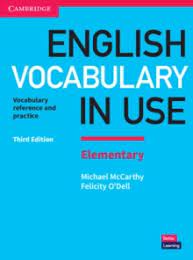
 كلمة جديدة
-
كلمة جديدة
-
 كلمة صعبة
كلمة صعبة

A Parts of a phone camera, screen, apps, power button, phone case, battery, charger, SIM card. B Using a smartphone. Ramesh takes a lot of selfies and posts them online. Lisa didn’t answer her phone, so I left a voicemail. Can you text me the address of the restaurant? I haven’t been there before. I’ve just got a message from Andy. He wants to know if we’re going to the party. You can download an app with a dictionary to help you when you write in English. While she was on holiday, Kelly called her family every day. C Expressions Can you read that message on my phone, please? My hands are wet. It’s locked. What’s the PIN? You don’t need a PIN to unlock it. Just swipe the screen left to right. swipe, save, PIN, delete. I can’t save any new photos. Your phone memory is full. You need to delete some photos and messages.
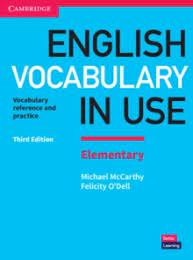
 كلمة جديدة
-
كلمة جديدة
-
 كلمة صعبة
كلمة صعبة

A Holiday (noun) We had a lovely holiday in Egypt in 2014. I’m not working next week. I’m on holiday. Are you going on holiday this summer? B Types of holidays We’re going on a package holiday to Hong Kong. [flights and hotel are included] We’re going to have a winter holiday this year. I want to go camping this year. [sleep in a tent]. I’m going on a walking holiday in the Alps. A coach tour is an easy way to go on holiday. [travelling in a comfortable bus] C Transport by plane, by train, by car, by ferry, by coach.
كان هناك طالب من كوريا الجنوبية , يقول أن لديه مشكلة كبيرة في النطق. إنه يعلم أن نطقه ليس جيدًا ولكنه لا يعرف كيف يجعله أفضل. لا يتكلم كثيرا لأنه لا يحب طريقة نطقه.
يقول إنه يقرأ ويسمع اللغة الإنجليزية و يفهمها جيدًا ولكنه يريد أيضًا التحدث جيدًا. يسأل عما إذا كان هناك شيء يمكنه فعله لتحسين نطقه.
قال له المدرس، "حسنًا ، يمكنني إخبارك بشيء عن النطق وكيفية التدرب عليه. أريد أيضًا أن أعلمك تقنية يمكن أن تساعدك في تحسين النطق.
أولاً ، علينا أن نعرف سبب معاناة الطلاب من مشاكل النطق. عندما نتحدث ، علينا أن نحرك أفواهنا. علينا استخدام العضلات في أفواهنا. المشكلة هي أنك عندما تتحدث الإنجليزية ، فأنت تستخدم أحيانًا عضلاتك كما في لغتك الأم. إذن فإن نطقك للغة الإنجليزية يشبه النطق بلغتك الأم.
يحدث هذا للعديد من الطلاب الذين يتعلمون اللغة الإنجليزية. كل طالب تقريبًا لديه نطق مختلف قليلاً عن المتحدثين الأصليين. إنها ليست مشكلة كبيرة لأن الناس عادة يفهمون ما تريد قوله. أنت طالب ومن المنطقي ألا يكون نطقك مثاليًا عند دراسة اللغة الإنجليزية.
ولكن يمكنك العمل على نطقك وتحسينه. هناك تقنية رائعة يمكن أن تساعدك كثيرًا.
اسم هذه التقنية هو التظليل (shadowing). هذه التقنية بسيطة للغاية. عندما تقوم بالتظليل(shadowing) ، فأنت ببساطة تنسخ الصوت الذي تسمعه. عندما يتعلم الأطفال لغتهم الأولى ، فإنهم يقلدون أيضًا ما يسمعونه. ينسخون مايسمعون من ابائهم مرارًا وتكرارًا وبعد فترة من الوقت يكون نطقهم مثاليًا. يمكنك تعلم نطق اللغة الإنجليزية بنفس الطريقة.
يمكنك اخد بعض المقاطع التي ليست سريعة جدًا والتي تفهمها جيدًا. أنت تستمع وتقوم بنسخ ما تسمعه عندما تسمعه.هذا كل شيء ".
ثم قال ، "التظليل (Shadowing ) مفيد أيضًا عندما تستعد لعرض تقديمي وترغب في الحصول على نطق جيد. قبل العرض التقديمي ، يمكنك الذهاب إلى مكان ما حيث تكون بمفردك ويمكنك التظليل (Shadowing ) لمدة 10 دقائق تقريبًا. سترى كيف يساعدك ذلك على الحصول على نطق أفضل أثناء العرض التقديمي ".
عندما تريد أن يكون لديك نطق جيد ، كرر ما تسمعه بعد المتحدثين الأصليين.
مونيكا هي طالبة من ايطاليا. سألت المعلمة مونيكا بعض الأسئلة. المعلمة تعرف مونيكا لأن مونيكا كانت في فصلها قبل عام . كان فصلًا للمبتدئين ولم يستغرق سوى أسبوعين خلال العطلة الصيفية.
عندما تحدثت مونيكا ، كانت لغتها الإنجليزية جميلة. نطقها كان جيدا . وكانت تتحدث بطلاقة .
كانت المعلمة سعيدة للغاية وقالت لمونيكا ، "يجب أن تكون مدرستك في إيطاليا جيدة جدًا."
قالت مونيكا ، "أنا لم أذهب إلى أي مدرسة. أتعلم اللغة الإنجليزية في المنزل. أنا أستخدم التقنيات التي تغلمتها منك. أقوم بالكثير من القراءة وتكرار الكلام اللذي اسمعه بصوت عال (shadowing التظليل ) والتفكير بصوت عالٍ. أحاول التفكير باللغة الإنجليزية أكثر من الإيطالية.
هذه هي الطريقة التي أعمل بها على تحسين لغتي الإنجليزية. لقد ساعدني الأسبوعان اللذان قضيتهما في الصيف الماضي في صفك كثيرًا. لقد أظهرت لي الطريق. أعرف كيف أعمل على تحسين لغتي الإنجليزية كل يوم. هذا هو سبب رغبتي في المجيئ إلى صفك مرة أخرى لأنه قبل عام ، كنت مبتدئًتا ويمكنني الآن التحدث باللغة الإنجليزية. أريد أن أتعلم منك مرة أخرى ".
كانت المعلمة سعيدة لسماعها هذه الكلمات و شكرت مونيكا على عملها الشاق.
تقول المعلمة ، "إن تقنية " التفكير بصوت عالٍ " فعالة للغاية. يجب أن يكون لديك دافع قوي لتعلم اللغة الإنجليزية إذا كنت ترغب في الاستفادة من هذه التقنية.
من الجيد أيضًا معرفة أن هذه التقنية مجنونة بعض الشيء بالنسبة لبعض الناس. ولكن عندما تبدأ في التفكير بصوت عالٍ ، يمكن أن تكون لغتك الإنجليزية أفضل بسرعة كبيرة ".
"حسنًا ، إنه في الواقع امر بسيط للغاية. أنت تفكر بلغتك الأم طوال اليوم كل يوم. هذا طبيعي. الآن ، يمكنك البدء في التفكير باللغة الإنجليزية. وعندما تبدأ في التفكير باللغة الإنجليزية ، يمكنك التفكير بصوت عالٍ. أنت ببساطة تقول ما تعتقده بصوت عالٍ. هذا كل شيء ".
ثم سألت المعلمة مونيكا إذا كان من المناسب لها التحدث عن تجربتها في التفكير بصوت عالٍ.
قالت مونيكا ، "عندما بدأت بهذه التقنية ، لم يكن الأمر سهلاً. لقد بدأت بجمل بسيطة للغاية. على سبيل المثال ، "يمكنني التحدث باللغة الإنجليزية. من الجيد أن أتحدث الإنجليزية. أريد أن أكون أفضل. أنا بحاجة إلى الممارسة كل يوم. لا أعرف الكثير من الكلمات. لكن يمكنني استخدام هذه الكلمات جيدًا. أستطيع أن أقول أفكاري بهذه الكلمات. أستطيع أن أفعل ذلك. هذا عظيم.'
كانت الجمل بسيطة حقًا. لكن في البداية كانت هناك مشكلة واحدة. كان تفكيري باللغة الإيطالية طويلًا ومعقدًا. لم أستطع أن أقول باللغة الإنجليزية بالضبط ما كنت أقوله بالإيطالية. كنت بحاجة إلى إيجاد نموذج أبسط للغة الإنجليزية. كان التفكير بلغة إنجليزية بسيطة هو الجزء الأصعب. لكن بعد مرور بعض الوقت كان من الطبيعي بالنسبة لي أن أفكر باللغة الإنجليزية.
ثم حدث شيء مثير للاهتمام. التقيت بفتات من استراليا. كانت في إجازة في إيطاليا. كنت ما زلت مبتدئًتا ، لكننا بدأنا في التحدث باللغة الإنجليزية. استطعت أن أرى أنني تمكنت من التحدث معها دون مشاكل كبيرة. كانت جملي بسيطة وقصيرة ، لكنني كنت قادرًتا على التحدث. لم أترجم الكلام في نفسي من الإيطالية إلى الإنجليزية.
بعد الالتقاء مع هذه الفتات من أستراليا ، بدأت في استخدام التفكير بصوت عالٍ أكثر. ساعدني هذا الأسلوب كثيرًا في حديثي. ما زلت أستخدمه كل يوم. إنها حقًا تقنية فعالة للغاية ".
ان كنت تريد التحدث باللغة الإنجليزية بطلاقة ، فكر بصوت عالٍ.





